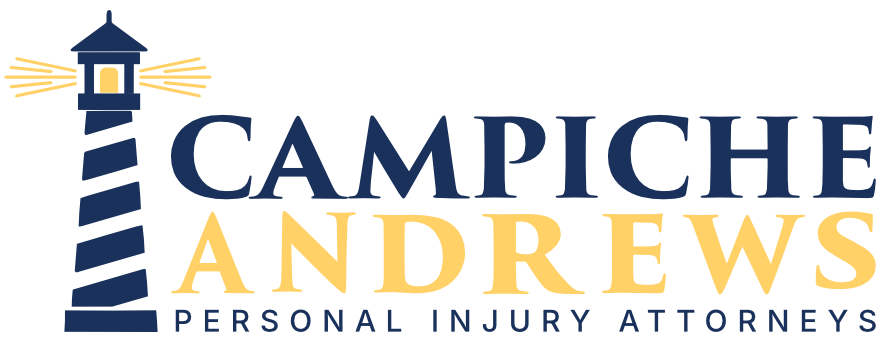Who Can File a Wrongful Death Claim in Washington?
When a loved one dies because of negligence, families want answers and accountability. Washington law allows certain people to seek compensation through a wrongful death claim. This guide explains who can file, how the process works, who may receive compensation, what damages are available, and the practical steps to begin.
Legal note: This article is general information, not legal advice. Wrongful death rules are technical and time sensitive. Speak with an attorney about your specific facts.
What Is a Wrongful Death Claim?
A wrongful death claim is a civil action that seeks compensation when a death results from the negligent or wrongful act of another person or company. The claim is separate from any criminal case and focuses on financial and nonfinancial losses suffered by eligible beneficiaries.
Who Files the Lawsuit?
In Washington, a court appointed personal representative of the estate usually files the wrongful death lawsuit. The personal representative brings the claim for the benefit of eligible beneficiaries. If a probate estate is not yet open, the court can appoint a personal representative for the limited purpose of pursuing the claim.
Key points
-
The personal representative files the case in court.
-
The claim is pursued for the benefit of the legally eligible beneficiaries.
-
The court oversees who receives compensation based on the statutes and the facts.
Who Can Receive Compensation as a Beneficiary?
Washington law identifies who may recover as beneficiaries in a wrongful death claim. In many cases the first group of beneficiaries includes a spouse or state-registered domestic partner and children, including stepchildren. If there is no spouse, partner, or children, other close family members may be eligible under specific rules. Eligibility can depend on family status and other legal factors.
Common beneficiary categories
-
Spouse or state-registered domestic partner
-
Children, including stepchildren
-
If none of the above, certain next of kin such as parents or siblings may qualify under the statute
Because eligibility can turn on details such as marital status, parental rights, adoption, or whether other beneficiaries exist, it is important to have a lawyer evaluate your family’s circumstances.
Special Situations That Affect Eligibility
Real life is complex. These situations often require close review.
-
Unmarried partners: A state-registered domestic partnership can affect eligibility.
-
Blended families: Stepchildren and adopted children may have rights.
-
Estranged or absent family: Beneficiary priority may still apply.
-
No immediate family: Parents or siblings may qualify in the absence of primary beneficiaries.
-
Deaths involving medical or institutional care: Separate statutes may also apply, including medical negligence or hospital liability.
What Damages Are Available?
Compensation aims to address both economic and non-economic losses associated with the death. Available damages depend on the beneficiaries and facts.
-
Final medical expenses
-
Funeral and burial costs
-
Loss of financial support and household services
-
Loss of care, companionship, and consortium
-
Pain and suffering of the decedent where permitted
-
Other statutory damages available under Washington law
Your attorney will evaluate the full measure of losses, document them with evidence, and present them in settlement talks or trial.
How Long Do Families Have To Act?
Strict filing deadlines apply to wrongful death claims in Washington. There can be exceptions and special rules depending on the facts, but waiting can result in losing the right to recover. Speak with an attorney as soon as possible so evidence can be preserved and the correct deadline can be met.
How To Start a Wrongful Death Claim
-
Preserve evidence
Collect photos, video, medical records, incident reports, bills, and the names of witnesses. -
Open or confirm the estate
Work with counsel to appoint a personal representative if one does not exist. -
Identify beneficiaries
Confirm who is eligible under the statute given your family structure. -
Investigate liability and insurance
Determine who is responsible and the coverage available. -
Calculate damages
Document income loss, services, and the full impact on the family. -
File and negotiate
Your attorney will file the lawsuit, seek discovery, and pursue settlement or trial.
Common Mistakes That Hurt Claims
-
Delaying legal review until after key deadlines
-
Posting details about the incident on social media
-
Speaking with insurers without counsel
-
Discarding documents, bills, or correspondence
-
Assuming you are not eligible without a legal analysis
Wrongful Death in Washington FAQs
Below are concise answers to the questions families ask most. These appear on the page and are represented in structured data for search visibility.
Who can file a wrongful death claim in Washington?
A court appointed personal representative files the lawsuit for the benefit of eligible beneficiaries, which can include a spouse or state registered domestic partner and children. If there are no primary beneficiaries, certain other close family members may qualify.
Who is considered a beneficiary?
Beneficiaries often include a spouse or state-registered domestic partner and children, including stepchildren. If none exist, parents or siblings may qualify under the statute. Eligibility depends on family structure and the facts.
What damages are available?
Families may recover medical and funeral costs, loss of financial support and services, and non-economic losses such as loss of companionship. Additional categories can apply based on the case.
How long do we have to file?
Washington imposes strict filing deadlines that can bar late claims. Because timelines depend on the facts, contact an attorney promptly to protect your rights.
Why Families Choose Campiche Andrews
Wrongful death cases require both strength and care. Our firm pairs trial experience with a compassionate approach to families. We handle the legal work while you focus on what matters most. We offer a free, confidential case review and there are no fees unless we recover for you.
Next step: Book a Free Case Review or call us through the Contact page. You can also review our broader guidance on Serious Injury and Wrongful Death.





